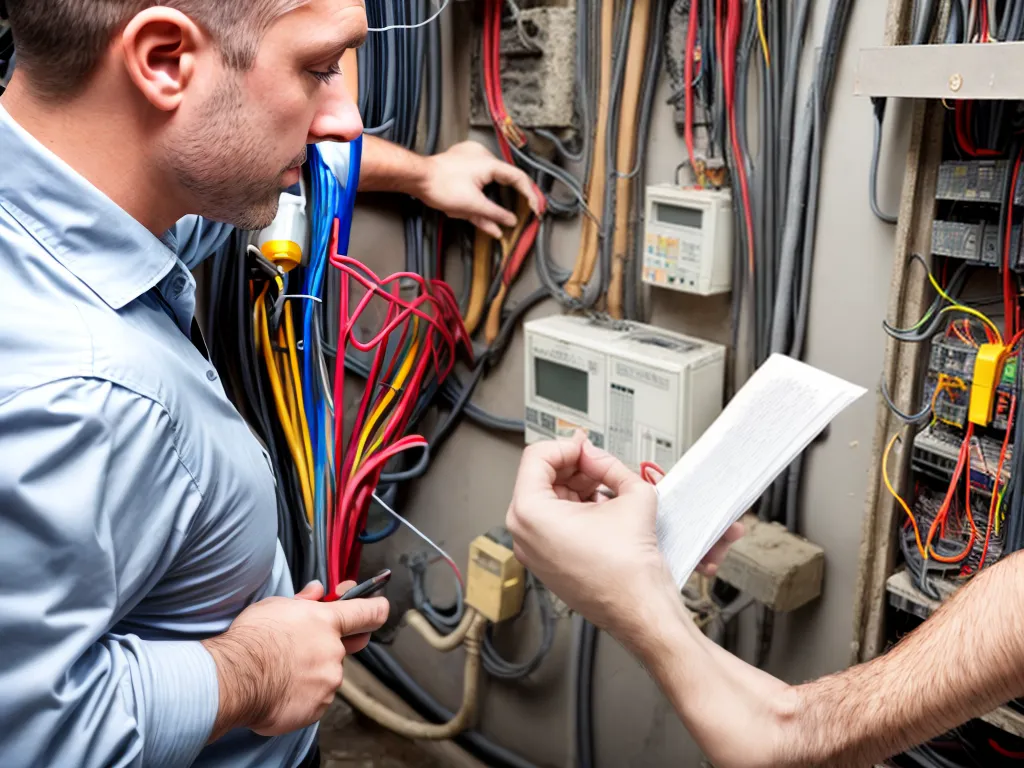
Upgrading the electrical system in a commercial building can be a complex process that requires careful planning and coordination with local permitting and inspection authorities. Following proper permitting and inspection procedures helps ensure the electrical upgrades are code-compliant, safe, and minimize potential issues down the road. This guide provides an in-depth look at navigating the permitting and inspection process for commercial electrical upgrades.
Understanding Permit Requirements
The first step is determining what permits are required for the specific electrical upgrades planned.
Types of Permits
There are a few common permits related to commercial electrical work:
-
Electrical permit - Required for most electrical system upgrades and new wiring. This covers inspection of all new electrical work.
-
Building permit - May be required if the upgrades involve substantial changes to building structures like new wiring conduits.
-
Fire alarm permit - Needed if the electrical upgrades impact the fire alarm system.
Check Local Building Codes
Electrical permitting requirements can vary by jurisdiction, so it's essential to check with the local building department on what permits are needed for the scope of your project. Provide details on the planned upgrades so they can advise on required permits.
Licensed Electrical Contractor
Importantly, commercial electrical permits are only issued to licensed electrical contractors. Permits are not issued directly to building owners. You must hire a licensed contractor to pull the required permits under their name.
Applying for Electrical Permits
Once you know what permits are required, the electrical contractor can submit the applications to the local building department. Here are key steps in the permit application process:
Electrical Permit Application
The electrical contractor will complete the electrical permit application with details like:
- Information on the commercial building location and ownership
- Scope of electrical work being performed
- List of licensed subcontractors
Supporting Documentation
The application must include supporting documents like:
-
Electrical plans - Diagram of new electrical wiring and equipment to be installed.
-
Equipment specifications - Details on electrical panels, conductors, transformers or generators to be installed.
-
Insurance certificates - Proof of liability insurance for the electrical contractor.
Permit Fees
A permit fee typically must be paid at the time of application, based on the cost of electrical work. There are sometimes separate fees for additional permits like fire alarm permits.
Permit Review Process
The building department reviews the permit application and documents to ensure everything is complete and code compliant. This may take 2-4 weeks.
Permit Approval
Once approved, the electrical permit is issued to the contractor. This authorizes the electrical work to begin per the approved plans.
Scheduling Inspections
As electrical work is completed, inspections must be scheduled with the local building department to verify code compliance.
Types of Inspections
Typical inspections for commercial electrical upgrades include:
-
Rough-in inspection - Early wiring, conduit, and equipment installation.
-
Final inspection - All electrical work completed and ready to energize.
-
Fire alarm inspection - If fire alarm upgraded.
Calling to Schedule
The electrical contractor must call the building department in advance to schedule required inspections. Provide permit numbers, site address, type of inspection, and work completed.
Inspection Windows
Inspections typically occur:
-
Morning - For rough-in and partial inspections.
-
Afternoon - For final inspections when all work is complete.
Leave ample time to make corrections noted.
Inspector Arrival
The inspector will arrive within the scheduled inspection window to review work and electrical code compliance. Provide access as needed.
Tracking Inspections
Keep a log of all completed inspections, inspector names, approval status, and any notes or corrections required.
Passing Inspections and Completing Electrical Upgrades
The final steps are passing inspections, making any corrections, and final approval.
Inspector Review Process
During each inspection, the inspector will:
- Visually review electrical installations.
- Check for code violations.
- Test wiring, grounding, and equipment.
- Note any corrections needed.
Passing Inspection
If everything looks acceptable, the inspection is passed. The electrical work covered by that inspection can continue.
Failed Inspections
If violations or deficiencies are found, the inspection is failed and those items must be fixed. The contractor will reschedule a re-inspection when issues are addressed.
Making Corrections
Carefully address all inspector notes, comments, and required corrections before calling for re-inspection.
Final Approval
Once the final inspection is passed, the inspector grants final approval to energize the electrical system. The upgrades can then be completed.
Completing Permits
The permits are closed out once final approval is granted. Submit any final permit forms and pay any remaining fees.
Following proper permitting and inspection procedures throughout an electrical upgrade project helps ensure a code-compliant, safe installation. Carefully coordinating inspections and addressing any corrections along the way minimizes costly surprises down the road.